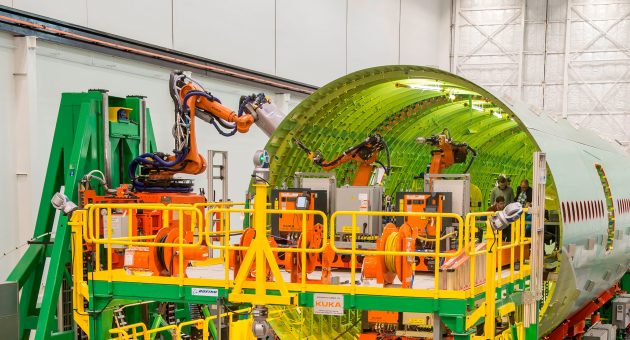
Chinese suitor Midea vows Kuka will stay independent after takeover
by Kelvin Chan, The Associated Press

The Chinese appliance maker already owns 13.5 per cent of Kuka shares and last month offered to acquire the remaining shares

Appliance maker Midea says Kuka’s technology would help it boost manufacturing efficiency.
In a document outlining the share offer announced last month, Midea said it “fully supports” Kuka’s operational independence and current strategy.
The Chinese company already owns 13.5 per cent of the robot company shares and is offering to buy the rest, as required under German law. It wants to raise its stake to at least 30 per cent, making it the largest shareholder, and is offering 115 euros for each share, valuing Kuka at 4.6 billion euros ($5.2 billion).
The company last traded at 109 euros a share.
“We want to support Kuka’s growth and plan to jointly realize the vast growth potential in China,” Chairman Paul Fang said in a statement. “We do not aim to dominate Kuka or delist the business.”
Midea said it wouldn’t force changes to the brand, move its headquarters from Augsburg, Germany or share its intellectual property or sensitive customer data. It also promised preserve the staff of 12,300.
The offer is part of a wave of Chinese investments overseas but it also raised doubts in Germany about Chinese purchases of local companies.
Midea, based in the southern province of Guangdong, has 93,200 employees. It’s one of China’s biggest air conditioner makers and also produces fridges, washing machines and other consumer appliances.
Midea said it hopes to expand distribution of industrial robots to other Chinese industrial firms, which are increasing factory automation as China’s workforce shrinks and wages soar.
The Chinese company said its bigger stake in Kuka could also help it develop new smart home devices and service robots, product lines expected to grow quickly on rising demand from China’s swelling middle class.